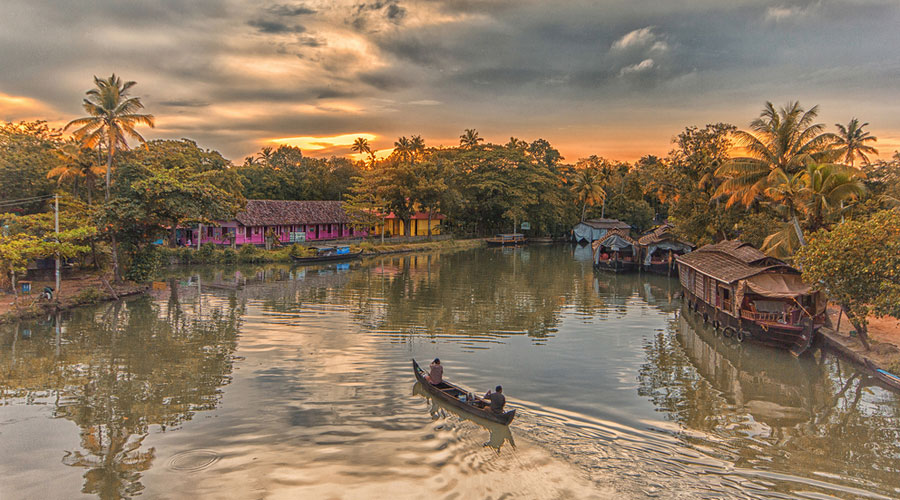With tourism drying up, Aveda Resorts and Spa in the picturesque backwaters of Kumarakom is trying to ensure that it is not fish out of water.
The holiday resort in Kerala has converted its swimming pool — a 150m long and 50m wide sliver of blue that runs between quaint cottages — into a fish farm to ensure its employees have some activity and the property earns a nominal revenue at a time the Covid-19 pandemic has halted tourism.
Aveda Resorts and Spa, located near the Vembanad Lake, has been closed since the lockdown began in March. With the tourism sector showing no signs of picking up anytime soon, the resort management has begun farming pearl spots, or the traditional karimeen that is a delicacy in the state, especially in the southern backwaters.
While the earnings from fish farming would be hardly sufficient to tide over the losses for Aveda Resorts and Spa in Kumarakom, one of the busiest tourist hubs of Kerala, it has helped the 20-odd workers still at the resort to learn a new skill.
When the coronavirus tightened its grip on Kerala and the rest of the country, the workers of the resort spread over 3.5 acres were left with nothing much to do other than regular maintenance of the property, a high-end boutique resort with room tariffs ranging between Rs 7,500 and Rs 15,100 per night.
“During a brainstorming session with the management, questions came up about how to utilise the time and what to do other than regular repair and maintenance of the property,” the resort’s general manager, Jyotish Surendran, told The Telegraph on Tuesday.
“Eventually, a collective decision was taken to farm fish in the pool. The management took care of the investment of Rs 3 lakh, of which Rs 2 lakh was spent on buying seedlings,” he said.
The next step was to get expert advice on aquaculture. The resort has been receiving professional help from the National Centre for Aquatic Animal Health, which is a part of Cochin University of Science and Technology.
“After consultations with the experts, we decided to go for pearl spots since they are endemic to this region. So we emptied the pool and pumped in fresh water from the Vembanad Lake to provide an ideal environment for the 16,000 seedlings we purchased from four sources,” Surendran said.
Since the resort already had a number of half-grown pearl spots in small ponds on the premises, they were also transferred to the swimming pool where they have started breeding.
“The rectangular pool is 150 metres in length and 50 metres in width, with even depth which is ideal for aquaculture. We started fish farming on June 1, which would give sufficient time for harvest by Christmas,” Surendran said.
“We hope to earn about Rs 20 lakh by exporting the fish to the Gulf by Christmas, when the demand is very high. But that amount would hardly be enough to cover our losses,” he added.
With a likely yield of about 4,000kg of fully grown pearl spots, Surendran hopes to export them for at least Rs 500 a kg.
Surendran said the resort was now planning to continue fish farming in some other location nearby when property reopens.
“Now that we have learnt a skill, we don’t want to let it go waste. At least we can source our own high-quality pearl spots or other fish from our farm (when the resort reopens),” he said.
But there is no plan to go for another yield from the same pool since the resort should be ready to receive tourists once the pandemic-related restrictions are eased.
“More than 60 per cent of our guests during the peak season of November to March are Europeans. Business is usually dull in April and May, after which the Arabs start coming to enjoy the monsoon. Then our NRIs also come during the Onam festival,” Surendran said.











